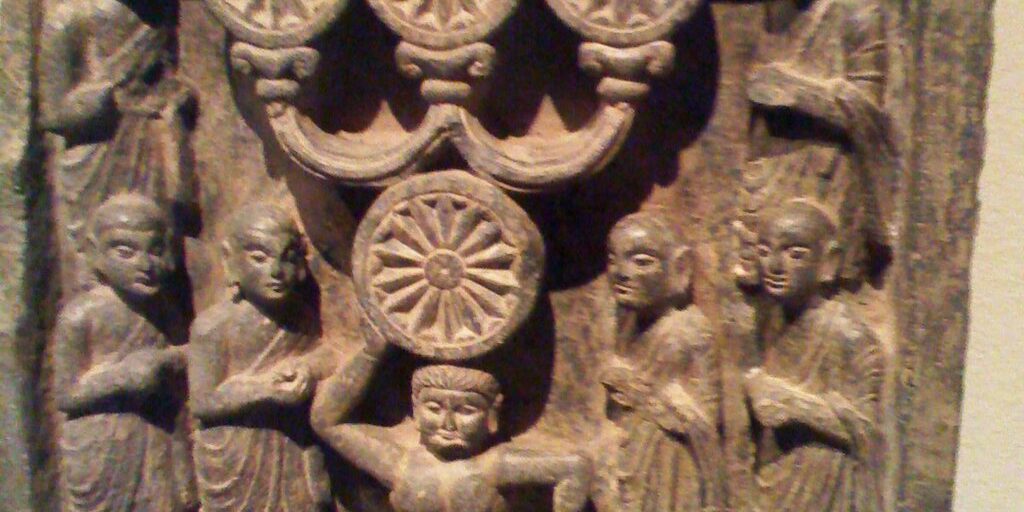I vow not to speak ill of the Three Treasures, but to cherish and uphold them.
The process we want to be in needs a particular environment to happen. Everything depends on the law of cause and conditions. So, if we sit in a bar, watch TV and surround ourselves with people who stimulate our greed, anger and ignorance, we become the consequence of it. In the same way, we can create favorable conditions for our process. In Buddhism, there are three treasures: Buddha, Dharma and Sangha. But they must be cherished, otherwise they can easily decompose and lose their power to transform us.
What are these treasures? And how can we take care of them?
The Buddha represents our aspiration to achieve clarity and understanding of reality. At Sonoma Mountain Zen Center, there was a sentence in the resident guidelines asking residents to memorize their original motivation for living in the monastery. I think that it is very important to keep returning to that original motivation. It’s very easy to get lost in forms, community roles, and group dynamics.
That is the work that is still going on, and so we are still conditioned to run in the samsara wheel. Desires can quickly take over our lives and make us forget our deep aspirations. Very often people do not come directly to the practice. It takes many repetitions of deep motivation and distraction before the practice becomes an integral part of their lives. Focusing on the goal helps reduce the influence of distractions.
It is also helpful if we are able to maintain a lively interest. Otherwise, we may become bored and distracted by other things. If we keep the Buddha in mind as something valuable, it is like a lighthouse to which we can point our ship, or like a huge magnet that pulls us in the right direction. If we allow harmful opinions to creep in, our motivation can weaken. Dharma stands for all the teachings that help us attain the Way. So if we do not treat them with the respect they deserve, they will not affect us as deeply. Our practice is about putting ourselves in favorable conditions. We do not do our practice. It does itself. Our effort is to maintain those conditions. And that’s the only place we can direct our efforts. (I think this is also the answer to Dogen’s question: why do we need to practice if we are all already enlightened?)
It is also very supportive to know that many generations of teachers have worked on skillful means to help us in this process. If we treat them with respect, they become our friends and supporters on the path. If we do not treat them with respect, they become oppressive objects with whom we struggle.
Sangha are people we bring together to help each other stay on the path. Being a part of Sangha requires a lot of skills. It’ is important to help it be harmonious. However, sometimes it may be necessary to say or do something that is needed but causes stress. There is an art to doing this skillfully to minimize the impact.
Very often we say things out of habit or out of stress. We should not beat ourselves up about it. Drop the pitcher – forget the pitcher. These are all our past states, and we are on our way to changing them. It is important that we make a constant effort. Then all things will improve.
After all, very often we see things as they reflect our inner world. We project our things onto others. We see our problems in others. But it also works the other way around. We become what we see. So when we see the good in others, we become better. That’s why it’s better to have a positive attitude toward the Three Treasures. Of course, this is not the only reason. All the things mentioned before are also important.







